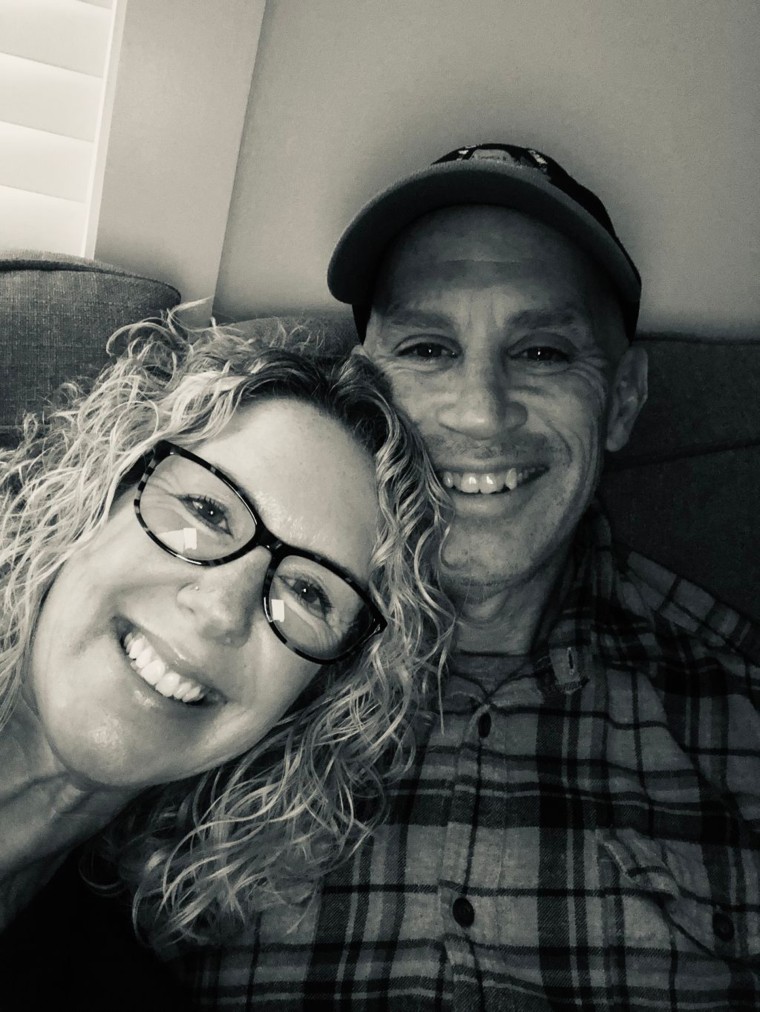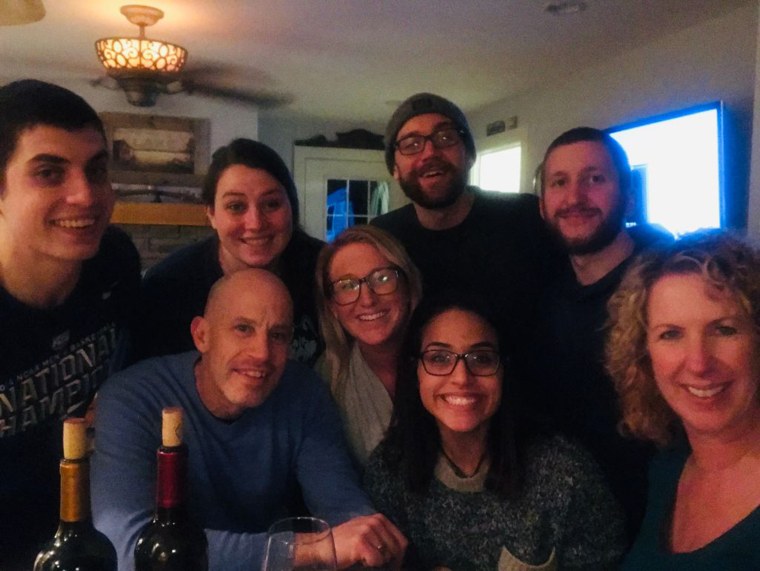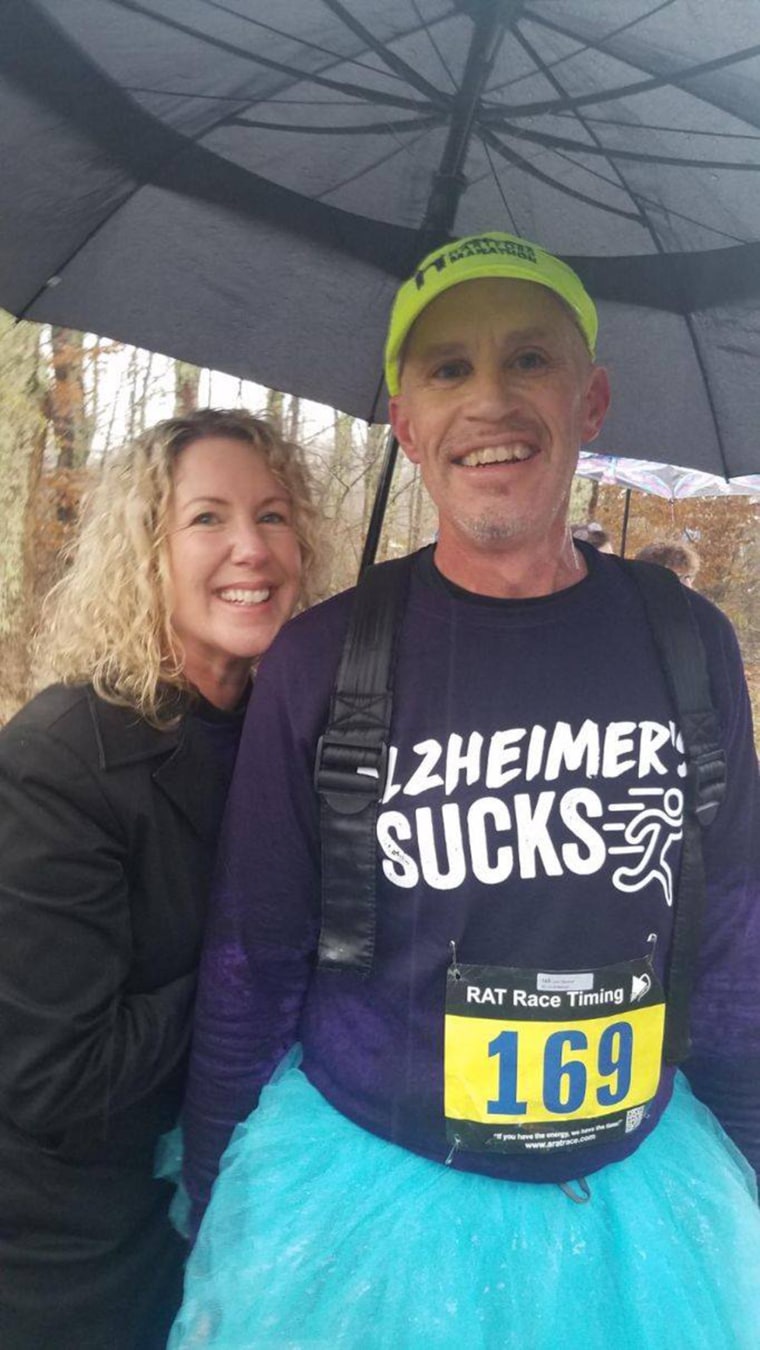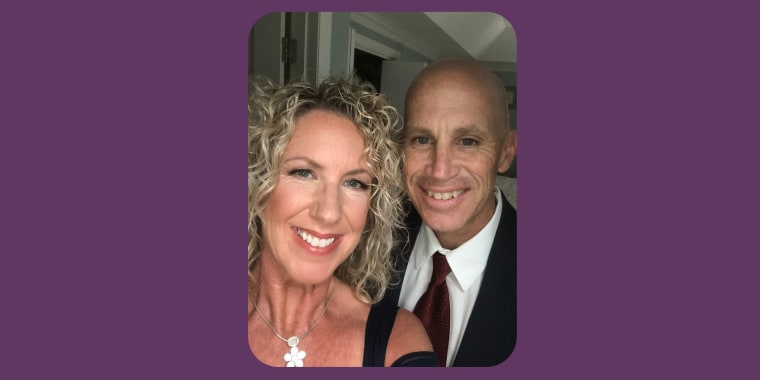Every night, Lisa Marshall makes sure Peter Marshall brushes his teeth and puts his pajamas on. She pulls back the covers for him to climb into bed, and sometimes he will enthusiastically jump around before he settles quietly into the sheets. Before leaving the room, she makes sure to give Peter lots of kisses and tell him how much she loves him. Peter is not Lisa Marshall's son — he is her husband.
In 2018 at age 53, Peter was diagnosed with early onset Alzheimer's, and Lisa, his wife and full-time caretaker, has been by his side since.

Before Peter's diagnosis, Marshall admitted she knew something was wrong with her husband for a couple of years, but chalked it up to getting older.
On Valentine's Day 2017, at the insistence of both his wife and friends, Peter agreed to see a doctor. Marshall said she vividly remembers the day Peter was diagnosed, April 30, 2018, after a year's worth of cognitive testing and appointments.
"The neurologist was sitting on the exam table leaning forward with his elbows on his knees," Marshall told TODAY Health. "He was delivering his words so deliberately and slowly, so I could understand them. He said it was early onset Alzheimer's and I was like 'Cool, let’s go get some lunch.' I would not acknowledge it. I would not accept it."

With no close friends or family who shared a similar diagnosis, Marshall admitted she was naive to the way the disease would impact their lives.
"I didn’t know anything about Alzheimer's," she said. "It was something you get when you’re 80. I was ignorant about it. I didn’t know anything at all. I knew cognitively he was slipping quick, but I was in denial."
While Alzheimer's is more common in people older than 65, younger- or early-onset Alzheimer's can happen to people in their 40s and 50s. According to the Alzheimer's Association, it is unclear how many people in the U.S. suffer from early-onset Alzheimer's and the cause is unknown, though for some it may be genetic. Memory problems that interfere with day-to-day life are the first signs of Alzheimer's, followed by or in conjunction with a decline in cognition, like struggling to find words, develop a plan or work with numbers.

As Peter's disease progressed, and quickly, Marshall was determined to help other caregivers facing the same diagnosis feel less alone. She began documenting their journey on a Facebook page titled, "Oh Hello Alzheimer's." To date, the page has over 2,000 followers.
"I think that in the beginning it was me just really screaming, 'Look at this! Look at what’s happening to us!'" Marshall said. "I was horrified. It was a desperate cry. It’s been a support for me and a bunch of other people who get it and are going through the same thing."
Over the past three years, Marshall has shared the devastating situations she has faced as both Peter's wife and his full-time caregiver — everything from creating a bulletin board of familiar faces to installing a bidet to assist with Peter's inability to use the bathroom alone.
Early on, as Peter participated at a clinical trial, Marshall posted an anecdote about reminding him to take his medicine: Peter opened up a container of Parmesan cheese, poured some in his hand, and ate it like pills.
While her anecdotes can be both humorous and heartbreaking, Marshall's goal has always been honesty.
"I just want to be open and honest and tell people what we’re experiencing, because you might too," she said. "I’d rather know it and be prepared. That’s my whole mission, too. There’s no platform you can go to find it out."
In a more recent post, Marshall detailed Peter's inability to recognize her as his wife.
As Alzheimer's has slowly taken over Peter's brain, the couple no longer sleeps together due to the seizures Peter suffers in his sleep and Marshall has taken on more of a parental role.
"The thing I miss the most is intelligent conversation or dialog with him," she told TODAY, adding that he no longer understands playful banter. "He has no idea what these words mean."
While she is surrounded by support from friends, family and their five children, Marshall said the weight of the situation is never far.
"I remember him putting on a gray (tank top) over his T-shirt when we were on vacation, and he just totally didn’t think anything about it, or he has two different shoes on and he doesn’t think about it," she shared. "It’s a smack in the face — oh, we have Alzheimer's. You’re so constantly adapting that it doesn’t even phase you, until it does."
In the meantime, Marshall is savoring every moment she has left with the love of her life.
"We do a lot of crying here," she said. "Caregivers like me grieve every single day."
Related:


